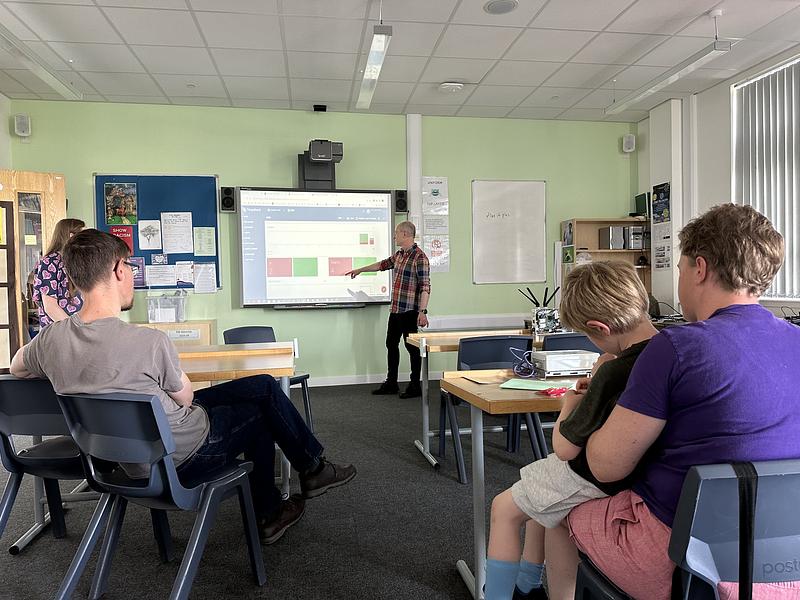
By Dr Andrew Muir, CEO of FarrPoint
Attracting fresh talent into the sector is badly needed, according to (this will open in a new window)recent research which suggests more than 60% of telecoms engineers are over 50.
That statistic is particularly frustrating given most young people can’t imagine their lives without the Internet and constant connectivity. Even their parents, who are old enough to remember a time before smartphones, tablets and laptops, would be lost without it. Whether it’s connecting to watch your favourite show on Netflix, calling your family on Facetime or shopping online, we rely on people working in telecoms to make it all happen smoothly.
Telecoms continues to be a fast paced, exciting global industry that grows and adapts at an impressive rate. Here in the UK, advances in fixed and mobile connectivity continue apace and new applications which make the most of this fast, responsive infrastructure are everywhere, across home, work and play.
Yet, a (this will open in a new window)recent report by Manpower found that 42% of telecoms businesses were reporting a specialist digital or IT skills gap in the external labour market. Put simply, we need more talent, and we need it fast.
It’s not necessary to be a tech whizz to build a career in telecoms; there are a huge variety of potential roles, both office-based and out in the field. You could be anything from a design engineer running the television and internet coverage for major sporting events, or a telecom leader in the health sector where connectivity is hugely important to improving care, or a satellite engineer who plans and design telecoms infrastructure in space. There are also many supporting roles in the likes of product development, sales, marketing, HR and finance.
When I talk to my colleagues, I hear many stories about unconventional journeys into the industry. Emma Philpott, our head of mobile, didn’t plan a career in telecoms or digital connectivity. She studied oceanography and chemistry at university before applying for a graduate job with a global engineering consultancy and then somehow ending up on their digital communications team. The projects Emma has been involved with over the years have taken her all over the world, from Abu Dhabi to Antarctica. And she’d be the first to tell you she continues to learn and discover in this fascinating sector.
Personally, I didn’t know what I wanted to do when I left school, and just ended up studying electronic engineering. I quickly caught the bug and moved from research into lecturing and teaching, then designing networks before going into consultancy and setting up my own company, which has been extremely rewarding.
A team from that company, FarrPoint, travelled to Orkney this year with a mission to inspire more youngsters into a career in telecoms. As part of the (this will open in a new window)Orkney International Science Festival, they visited Kirkwall Grammar School to deliver two ‘Connectivity and the Internet of Things’ workshops for young people. In rural and island locations, finding employees with telecoms skills can of course be an even greater challenge.
The youngsters who came along got the chance to explore the world of connectivity, check their mobile signal strengths, test some smart IoT solutions, and learn to map 4G signal using FarrPoint’s mobile mapping tool.

We designed these workshops specifically to demonstrate how fun and engaging telecoms can be. At the events, the team could clearly see that many young people are interested in technology and how things work. It is now up to our sector to nurture that interest and communicate with our next generation of talent about the varied careers that exist in our exciting industry.
Bemoaning the broadening skills gap isn’t enough. Companies should get out there, talk to young people and tell them all the great things telecoms has to offer.
Organisations who are struggling to recruit should ask themselves if they are doing enough to raise awareness of their need for new talent, and whether they could be doing more to emphasise the considerable benefits our sector offers to young people.
Healthy job prospects, a great salary, a stimulating career, and the opportunity to know they are making a real difference to people’s lives – it’s an attractive message, so let’s get it out there.
Find out more about careers in telecoms
*Article first appeared in Total Telecom
Connectivity is important. It drives business and society, bringing communities and commerce together. That's why we use our insight and experience to connect people and business.